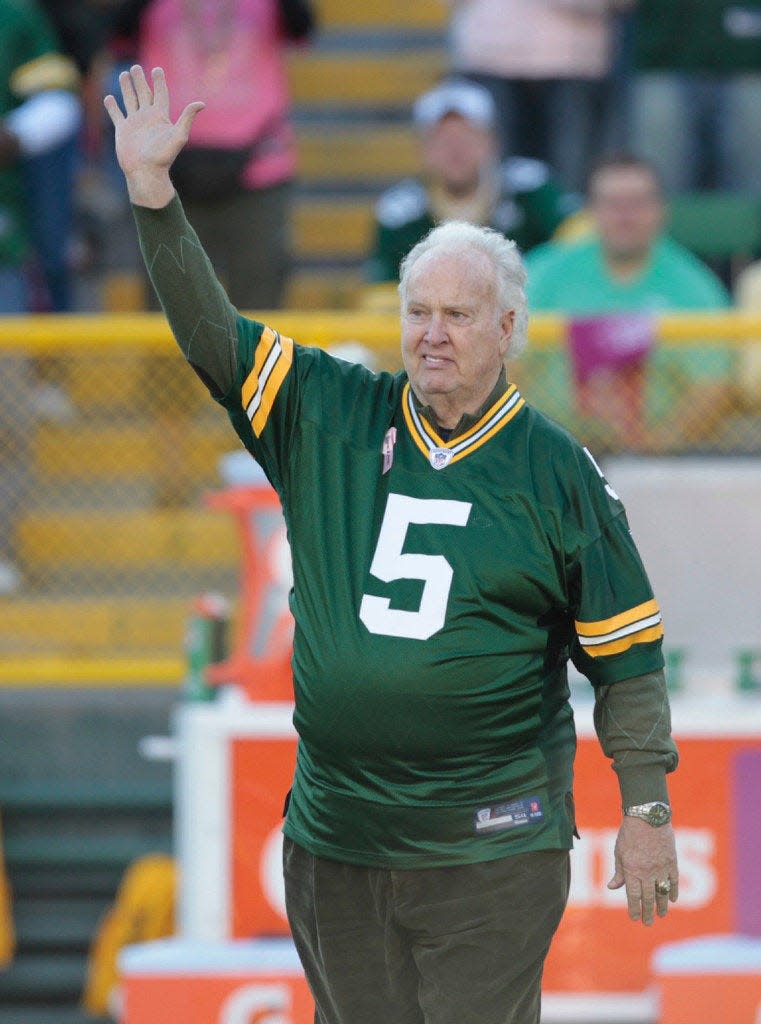Opinion: Pete Rose would be in the Hall of Fame if he played football
- Oops!Something went wrong.Please try again later.
- Oops!Something went wrong.Please try again later.
- Oops!Something went wrong.Please try again later.
If he had played football, he’d be in the Hall of Fame. Yup, Pete Rose would be enshrined in Canton, Ohio − the Pro Football Hall of Fame. This comes to light after Rose recently sent a letter to Major League Baseball Commissioner Rob Manfred for "forgiveness."
First and foremost, Rose should have addressed his letter to the National Baseball Hall of Fame and Museum − his ban from the Hall is their call. Major League Baseball does not control the Hall of Fame.
But Canton would have been an easier route. Take a look.
Jacksonville Jaguars wide receiver Calvin Ridley joined a notable list of NFL players who were suspended by the league for gambling.

Ridley is currently serving a one-season suspension after betting on games last year while he was a member of the Atlanta Falcons. On Twitter, Ridley said he bet a total of $1,500 on NFL games.
And guess what?
Ridley will be allowed to apply for reinstatement during the week following the Super Bowl, according to the league. The NFL’s collective bargaining agreement gives him the right to appeal the suspension.
Oh, Ridley has some company, too.
In 2019, John Shaw a defensive back who was on injured reserve was suspended through the 2020 season after he bet on NFL games. A member of the Arizona Cardinals at the time of his suspension, he has not played in an NFL game since he was reinstated on March 20, 2021.
Want more?

Alex Karras, one of the most dominant defensive players in NFL history, served a one-year suspension in 1963 after he admitted to placing bets on NFL games along with Packers running back Paul Hornung. He was reinstated on March 16, 1964, and played seven more years with the Detroit Lions that included his third All-Pro selection and fourth Pro Bowl selection in 1965. He was enshrined in the Pro Football Hall of Fame in 2020 − eight years after he passed away at the age of 77.
Hornung is a 1986 Hall of Fame inductee who holds NFL records for the most games with at least 30 points (twice) and 25 points (three times). An All-Pro kicker and running back, he returned to the Packers after his 1963 suspension to help them win NFL championships in 1965 and ’66.
Jason Williams' take:Why Pete Rose's latest reinstatement letter to MLB is as insincere as all his other pleas
If you’re still not convinced, the NFL has also suspended and reinstated players for violating the league’s Performance Enhancing Drug (PED) Policy.
In May, DeAndre Hopkins, the receiver for the Arizona Cardinals, was suspended for the first six games of this season − without pay. He’s back on the field and in action.
And, so too will be Cleveland Browns quarterback Deshaun Watson. He returns on Dec. 4, after an 11-game suspension, to play against his previous team, the Houston Texans. Watson was accused by more than two dozen women of sexual misconduct during massage sessions. He will also pay a fine of $5 million and undergo mandatory evaluation by behavioral experts and follow their suggested treatment program.
That’s strange, since the owner of the Washington Commanders − Daniel Snyder − has faced two NFL investigations and a congressional inquiry into allegations of rampant sexual harassment of women employees. The league has put pressure on him to sell.
The Pete Rose situation is quite simple to understand, and no one explained it better than former Enquirer writer, Jim Owczarski, on June 1, 2015. Owczarski said Rose was banned from baseball in 1989 for breaking Rule 21, gambling as the manager of the Cincinnati Reds. He was not banned from the Hall of Fame, he wrote, until 1991.
Bob Costas, in Owczrarski’s report, had this to say: "Baseball made a significant mistake by not separating the Hall of Fame from every other aspect of Pete’s punishment. You can’t have any connection to gambling. It is a clear and unambiguous rule posted in every clubhouse that lifetime banishment was attached to that. Lifetime banishment. So, Pete is serving that sentence."
Costas continued: "But they didn’t put in the ineligibility for the Hall of Fame clause. That wasn’t in (then Commissioner) Bart Giamatti’s decision. The Hall of Fame’s board of director’s decided that two years after Giamatti’s decision. If I saw his name on the Hall of Fame ballot and I were a voter, and I’m not because only writers are − if I were a voter, I would vote for him."
Costas concluded: “The idea that he can never be in the employ of baseball again, that he can never receive a dime from baseball, to be officially attached to baseball, make sense. That’s the penalty. That’s the penalty. Other stuff just seems like cruel and unusual punishment to me."
To me, too. But for Rose, football would have been the easier route.
Andy Furman is a member of the Enquirer Board of Contributors. He also talks sports nationally on Fox Sports Radio, serves as PR coordinator for The Point/Arc in Northern Kentucky and writes for the Brooklyn (NY) Daily Eagle.
This article originally appeared on Cincinnati Enquirer: Opinion: Pete Rose would be in the Hall of Fame if he played football

